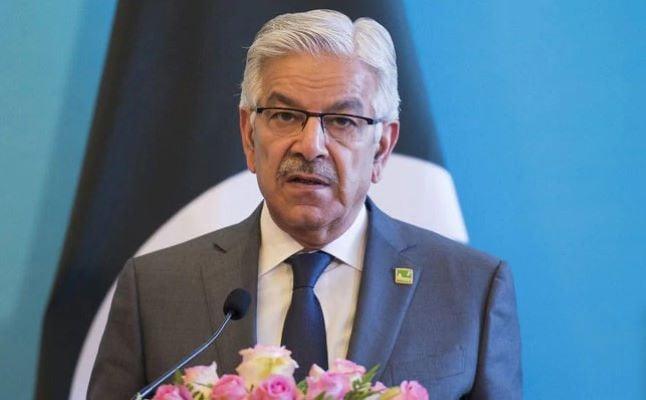Federal Defense Minister Khawaja Asif has said that Indian Prime Minister Narendra Modi faces increasing criticism both inside and outside the Indian parliament and says “Modi’s days are numbered” and the final judgment will rest with the Indian public.
In a speech with journalists, Asif Pakistan’s position outlined in front of any potential dialogue with India, saying that negotiations would focus on three core problems: terrorism, Kashmir and waters.
He confirmed that terrorism would be on the agenda along with the long -standing Kashmir conflict and concerns about India’s handling of the Indus Waters Treaty.
Asif repeated Pakistan’s attitude towards terrorism and noted that the country has been a victim of terrorism for 25 years and continues to be unfairly blame. “The world must now decide itself. Pakistan has suffered the most in the global war on terror,” he said, adding that Pakistan’s efforts and victims should be recognized.
The Minister recalled that Prime Minister Shehbaz Sharif had already offered to investigate recent terrorist incidents and said Pakistan remains open to dialogue – provided its role in the fight against terrorism.
At Kashmir, Asif emphasized that the dispute remains unresolved and must be treated in any conversations. As for water issues, he criticized attempts to politicize the case and warned that the Indus Waters Treaty should not be manipulated.
He accused India of supporting terrorism for years and called it an “international terrorist actor” referring to evidence that was allegedly found in Canada and the United States. “These evidence must be presented in any future conversations,” he said.
In a comment on the Indian political climate, Asif declared that Modi has lost control and failed to control the growing dissent. “He tried to contain the situation in his recent speech, but things have gone beyond his grip,” Asif said.
The Minister also claimed that India has sponsored terrorism for years with evidence that Indian involvement surfaces in both Canada and the United States.
“These facts must be brought to the table in any negotiation,” he said.
The Minister concluded in noticing Modi’s recent speech was an attempt to contain political harm, but claimed that the situation has already spiraling beyond repair.
India-Pakistan ceasefire follows escalation but fragile tranquility persists
A full and immediate ceasefire between India and Pakistan was announced on May 10 after days of increased military exchanges that brought both nuclear armed neighbors to the brink of the war.
The announcement was first made by US President Donald Trump and later confirmed by Pakistan’s Prime Minister Shehbaz Sharif, Deputy Prime Minister Ishaq Dar, Minister of external affairs S. Jaisankar and US State Secretary Marco Rubio.
Tensions flared after an attack on April 22 in Pahagam, Indian illegally occupied Jammu and Kashmir (IIOJK), leaving 26 civilians dead.
India accused Pakistan-based elements without providing evidence Islamabad rejected the claims. In response, India closed the Wagah border, revoked Visa and suspended the Indus Waters Treaty -Moves Pakistan called an “act of war.”
The conflict was intensified with India’s Missilattracks and the Drone penetration as it leaned its operation Sindoor.
Pakistan’s military launched Operation Bunyan-Un-Marsoos in retaliation and announced that it had put down five Indian jets-inclusive Rafales and captured 77 Israeli-made Harop drones.
After diplomatic intervention led by Washington, both sides agreed to stop military activity across land, air and sea. Hours after the ceasefire, however, fresh skirts were reported along both sides of the line with control.
Explosions were heard in Srinagar, and exchanges of fire by officials were quoted on both sides, which raised concerns about the durability of the ceasefire.
Pakistan’s foreign office repeated his commitment to the ceasefire while accusing India of violations.
DG Ispr LT Gen Ahmed Sharif Chaudhry emphasized that Pakistan had not requested the ceasefire, claiming that India began the ceasefire request after Pakistan’s retaliatory attack. He described war between two nuclear forces as “unbelievable” and “an absurdity.”
Chaudhry confirmed that no Indian pilot was in Pakistani custody and rejected viral claims as incorrect information.
He called Operation Bunyan-Un-Maroos a unified national reaction to Indian aggression, noting that Pakistan had delivered his obligations to respond resolutely and proportionately.
Cities all over Pakistan observed YouM-E-Taskkur (Thanky Day) on Sunday to mark what was hailed domestic as a successful defense of national sovereignty.



